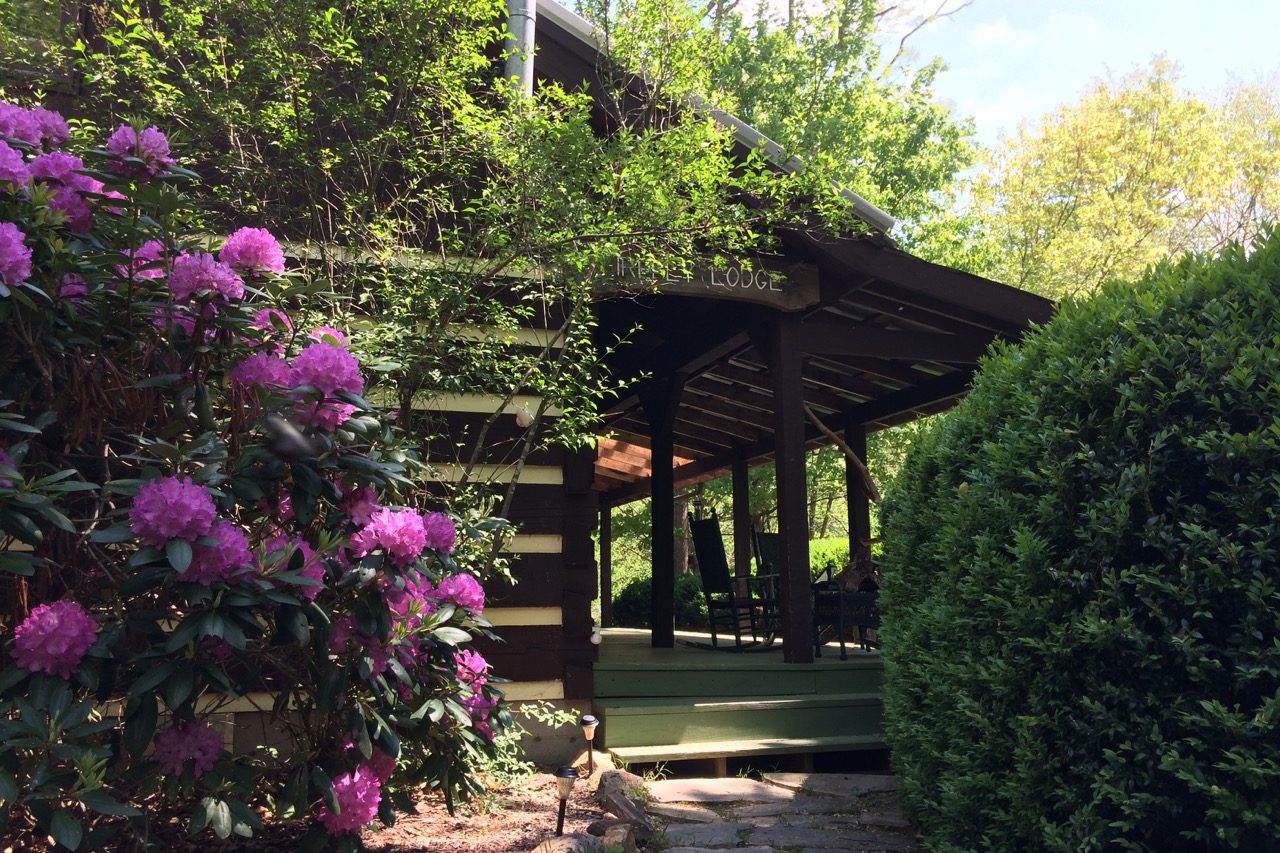Are you curious about the legal structure of High Cove?
High Cove makes use of standard legal mechanisms for creating what are called “common interest developments,” but uses these tools in an innovative manner, in service to the broad goals of community building and environmental responsibility.
What this means is that when you buy a home site in High Cove, you agree to guidelines intended to facilitate the the development of our community, and acquire the rights and responsibilities associated with care for the common areas and the preserved land.
The Village at High Cove
High Cove has been defined in our documents as comprised of two parts: the village (that is, the human settlement), and the Open Space (the preserved land).
Master Plan
The master plan outlines the broad goals– and limits– of the development of the village at High Cove. The village is comprised of two neighborhoods, a village center, and the artists Studio Court.
Documents
High Cove is established by a Declaration of Covenants, Conditions and Restrictions, which is recorded in the public records of Mitchell County, North Carolina
Association
Owners of lots are mandatory members of the High Cove Village Association, Inc. (the VHCA), a nonprofit corporation, and have one vote for each lot in matters related to management of the commons.
Design Guidelines
The Design Guidelines define common standards for building that is both ecologically sensible and contributes to the character of the community.
The High Cove Institute
The High Cove Institute, Inc., a not-for-profit corporation intended for tax-exempt status under 501(c)(3), has been created to address some of the cultural and social needs of High Cove.
The master plan
High Cove is comprised of two parts: High Cove Village and the Open Space. The master plan encourages a mixture of uses, both homes and businesses, especially in the Village Center. The Village Association, as discussed below, maintains the common areas within High Cove Village.
Clustering homes and businesses in High Cove Village allows the creation of a compact, walkable community while conserving the majority of the land.
The area outside of High Cove Village, known as the Open Space, is owned and by a separate entity, and managed by the Open Space Manager. While the Open Space may encompass an inn, scattered cottages and educational, cultural and recreational facilities, all uses must be compatible with the goal of conserving the Open Space as a visual amenity, a place for hiking and similar activities, and as ecologically healthy habitat.
All owners of property within High Cove Village have easements for appropriate use of the Open Space and contribute to its maintenance.
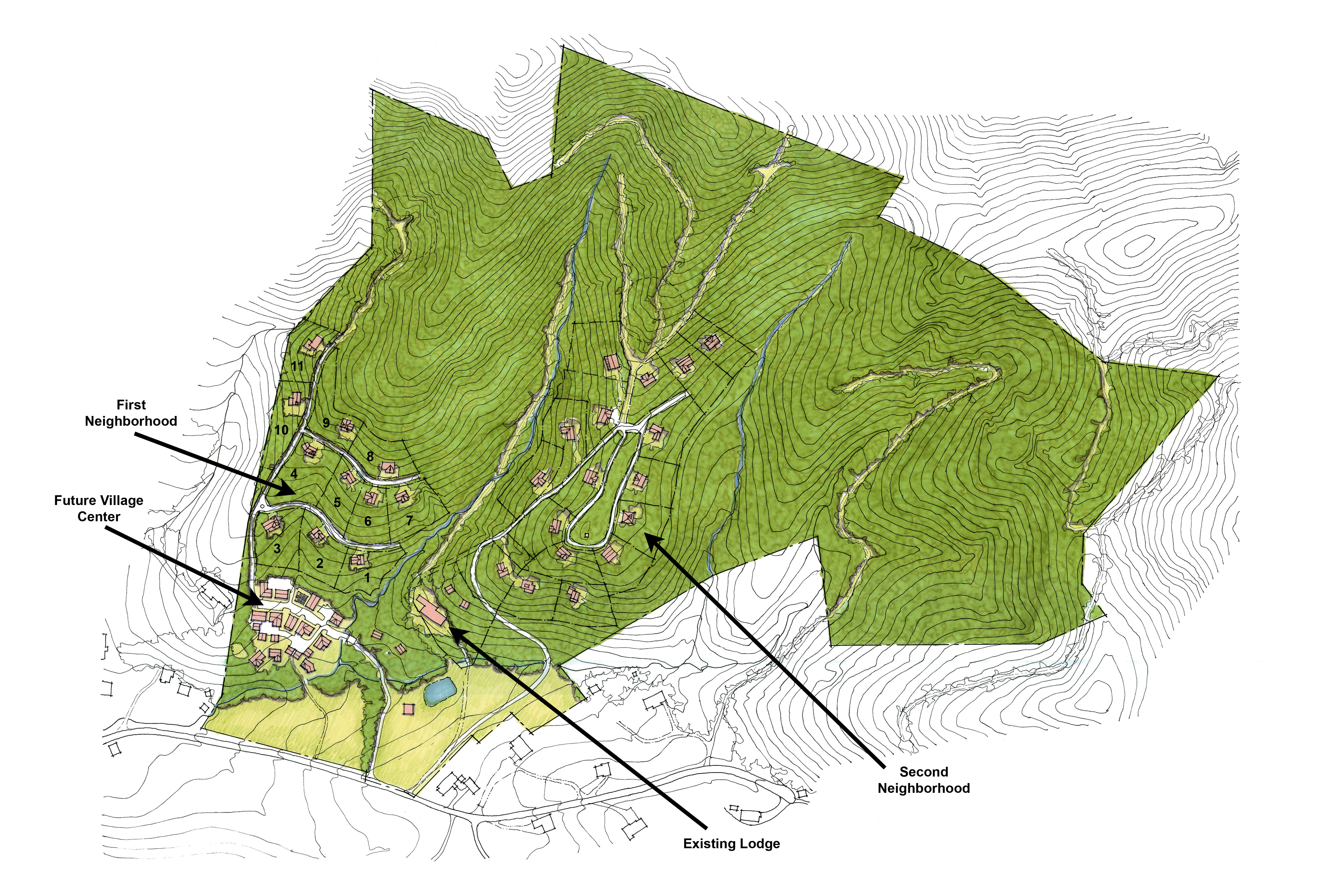
The documents
High Cove Village is established by a Declaration of Covenants, Conditions and Restrictions, which have been recorded in the public records of Mitchell County, North Carolina, where the property is located. Every deed for property within High Cove Village is subject to the Declaration, and every owner, in accepting title, is considered to have agreed to its terms.
The main text of the Declaration ties the document to the land and allows for its initial development. The main text of the Declaration also establishes the relationship between High Cove Village and the Open Space, requires architectural review of all improvements and puts a time limit on construction.
The following documents are part of the Declaration and are recorded as exhibits:
• The Book of Operating Principles (Exhibit A to the Declaration), provides guidance for the ongoing operation of High Cove Village and the Village Association. Although the Book is a legal document, it looks significantly different from most homeowners’ association documents. It is meant to provide the owners with the information they need in order to run their community successfully.
• The Articles of Incorporation (Exhibit B) form the Village Association as a nonprofit corporation under North Carolina law.
• The Bylaws of the Village Association (Exhibit C) provide details about corporate operation, including the election and duties of directors and officers.
The remaining important document is the High Cove Village Design Guidelines, which is not recorded, but is implemented by the Declaration and the Book of Operating Principles.
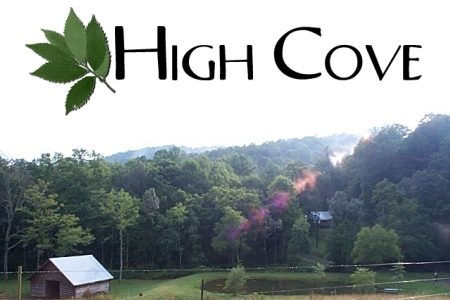
The Association
Owners of lots are mandatory members of the High Cove Village Association, Inc. (the VHCA), a nonprofit corporation, and have one vote for each lot. The owners elect a board of directors, which makes most of the decisions about operation of the community.
To meet the association’s expenses, the board of directors approves a budget and sets the level of assessments.
In addition, the VHCA hosts an annual meeting and a “Gathering,” typically held in July.
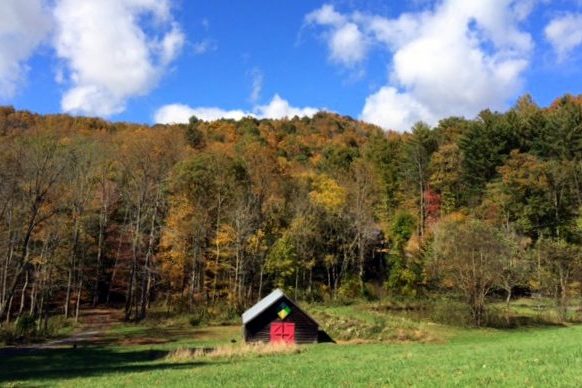
The Design Guidelines
In High Cove, the various building types should work together to create a harmonious whole. The High Cove Design Guidelines establish setbacks or build-to requirements, building sizes and design guidelines for the various lot types. All houses must achieve at least “silver” certification in the North Carolina Green Built Homes standard.
The Design Approval Process booklet, which supplements the High Cove Design Guidelines, outlines materials specifications for the buildings and other construction details. The Design Guidelines are not recorded in the public records and are intended to be amended as our knowledge and experience grows.
All construction within High Cove Village must be approved by the Design Review Committee, including subsequent modifications after initial construction.
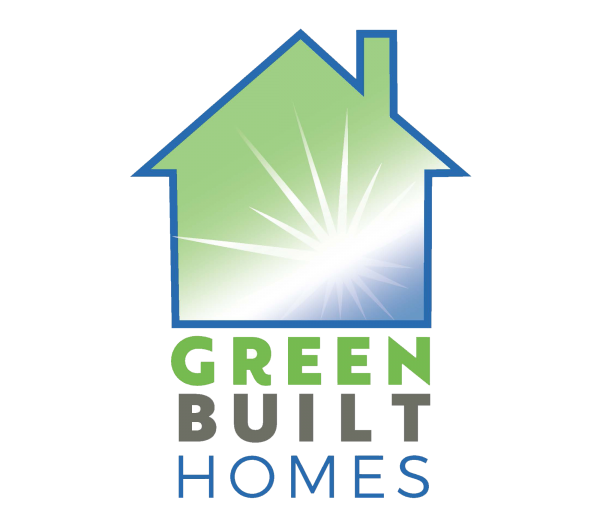
The High Cove Institute
The High Cove Institute, Inc., a not-for-profit corporation intended for tax-exempt status under 501(c)(3), has been created to address cultural and social needs of High Cove and to engage in other charitable activities. It may conduct research and sponsor education al events, seminars, concerts and art festivals. On any resale of a lot within High Cove, one-half-of one percent of the purchase price goes toward funding of the Institute.
